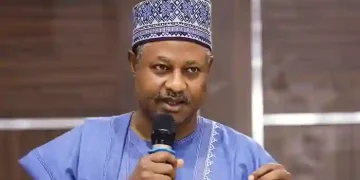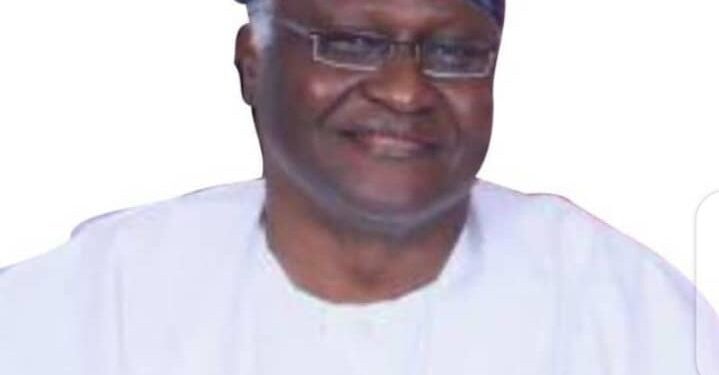The agitation for the creation of a new state from the old Ijebu Province has resurfaced with renewed intensity. As debates swirl and interests collide, one fact remains indisputable: state creation in Nigeria has historically succeeded only when unity of purpose overrides parochial sentiments. Today, the Ijebu and Remo blocs stand at a defining moment, one that may determine whether they finally clinch a long-overdue state or allow history to repeat itself.
In 1923, the British Colonial Administration created 22 provinces across Nigeria. Among them were Ijebu Province and Egba Province, each with distinct administrative identities. By 1938, the British further recognized the Kingdom of the Akarigbo of Remoland as an autonomous entity within the Ijebu Province.
Fast forward to 1976: through a military decree, the federal government merged both the Ijebu and Egba provinces to form the modern Ogun State, with Abeokuta as the capital. The military would go on to divide the state into three senatorial districts, Ogun East (9 LGs), Ogun Central (6 LGs), and Ogun West (5 LGs) — totaling 20 LGAs.
It was also in 1976 that Ogun State’s Traditional Council was formalized, giving only four paramount rulers permanent seats:
- Awujale of Ijebuland
- Alake of Egbaland
- Akarigbo of Remoland
- Paramount Ruler of Yewaland
This structure remains one of the significant historical references in today’s agitation.
Nigeria’s State Creation History: A Military Affair
Nigeria’s state creation trajectory has been driven almost entirely by military fiat:
- 1967 – Gowon: 12 states
- 1976 – Murtala Mohammed: 7 new states (total 19)
- 1987 – Babangida: 2 new states (total 21)
- 1991 – Babangida: 9 new states (total 30)
- 1996 – Abacha: 6 new states (total 36)
In contrast, democratic dispensations have found it nearly impossible to create new states without broad, almost unanimous stakeholder consensus.
The Unfinished Story of Ijebu Province
Out of the 22 original provinces created in 1923, Ijebu Province remains the only one yet to become a standalone state. Others have either evolved into full states or split into multiple states over the decades. This historical anomaly forms perhaps the strongest argument for the present agitation.
But past efforts to create a new state from Ogun have collapsed on the same fault lines: disagreement over the name of the proposed state and the location of its capital.
The New Reality: A Single Southwest Slot
At the October 2025 National Assembly Joint Committee Retreat on Constitution Amendment, it was revealed that only one additional state will be created in the Southwest. This decision has intensified the race among competing proposals.
Officially submitted requests include:
- Ijebu State (9 LGs; capital: Ijebu-Ode)
- Ijebu State (6 LGs; capital: Ijebu-Ode)
- Remo State (3 LGs; capital: Sagamu)
- Lagoon State (with Ogun Waterside included; capital: Epe)
- Torumbe State (from Ondo)
- Ibadan State (from Oyo)
- Oke Ogun/Ijesha State (from Oyo/Ogun/Osun)
With such scattered proposals, insistence on any one name or structure is likely to cause chaos and lead to another failed attempt — just like before.
Why the Ijebu–Remo Compromise Is the Only Path Forward
If the people of the old Ijebu Province hope to seize this rare opportunity, then stakeholders must rally around a win-win solution:
Name: Ijebu–Remo State
Capital: Ijebu-Ode
This proposal aligns with historical precedents, respects existing traditional structures, and acknowledges the administrative realities established since 1938 and 1976.
It also mirrors the emerging consensus: while Remos previously preferred “Remo State” with Sagamu as capital, many have now agreed to an Ijebu–Remo identity anchored in Ijebu-Ode. The Ijebus, therefore, must reciprocate — “sharp sharp” — to avoid losing the only available Southwest slot to the well-coordinated Ibadan State movement.
The Ibadan Factor: A Serious Competitor
The Ibadan bloc has shown remarkable unity. Although the old Oyo Province was split into Oyo and Osun States in 1991, the Ibadan agitation remains compelling. And if Ijebu-Remo fails to build consensus, the slot may swing in Ibadan’s favour — despite arguments for fairness in national balancing.
Looking Ahead: A Chance for Future Generations
Adopting an Ijebu–Remo State today does not foreclose the possibility of future subdivisions. Tomorrow’s generations in both Remoland and Ijebuland may demand their own states — and that too could accelerate development. But right now, unity is the only acceptable strategy.
Democracy demands dialogue, not ego. In a military regime, state creation can be decreed by radio announcement. In a democracy, it requires near-total agreement among stakeholders.
If the people of the old Ijebu Province truly desire the massive infrastructural growth and political relevance that have eluded them since 1923, then they must embrace a collective identity, negotiate in good faith, and present a united front.
The path to victory is clear:
Ijebu–Remo State. Capital: Ijebu-Ode. Consensus: 100%. No story.
Akogun Kola Onadipe, MSc, fniob, fcpm
A Professional in Politics (1998–date)

Seunmanuel Faleye is a brand and communications strategist. He is a covert writer and an overt creative head. He publishes Apple’s Bite International Magazine.





















